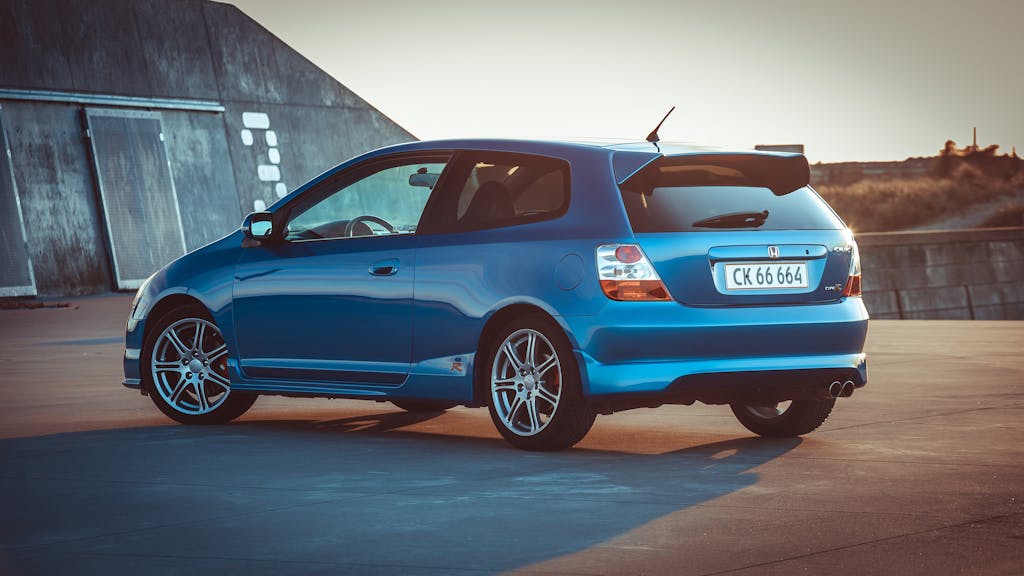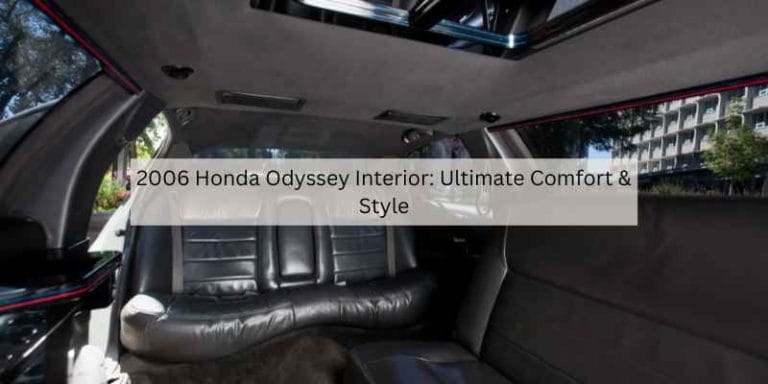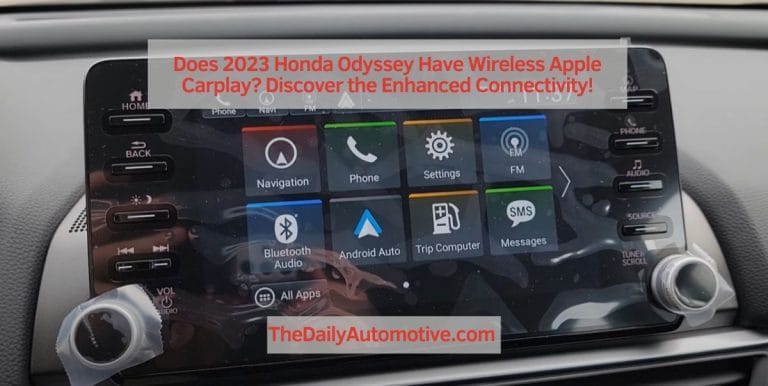Can Honda Civic Take Unleaded 88?: Uncover the Power
No, Honda Civics cannot use Unleaded 88 fuel. The Honda Civic cannot run on Unleaded 88 fuel.
It is designed to run on regular unleaded gasoline, typically with an octane rating of 87. Unleaded 88 fuel, on the other hand, has a higher octane rating and is not recommended for use in the Honda Civic. It is important to follow the manufacturer’s guidelines and use the appropriate fuel for optimal performance and fuel efficiency.
Using an incompatible fuel can potentially damage the engine and other components of the vehicle. Therefore, it is best to stick with the recommended fuel type for your Honda Civic.
1. Understanding Unleaded 88
When it comes to fueling our vehicles, we are presented with a variety of options at the gas station. One such option that has gained popularity in recent years is Unleaded 88. In this section, we will delve into the details of what Unleaded 88 is, its benefits, and whether it is compatible with the popular Honda Civic. So, let’s get started!
1.1 Strongwhat Is Unleaded 88?/strong
Unleaded 88, also known as E15, is a type of gasoline that contains up to 15% ethanol. This higher ethanol content sets it apart from regular unleaded gasoline, which typically contains up to 10% ethanol. Ethanol, a renewable and clean-burning fuel, is derived from corn or other plant sources, making it an eco-friendly option. Unleaded 88 has been approved for use in most cars, and its availability at the pump continues to expand.
1.2 Strongthe Benefits Of Unleaded 88/strong
There are several advantages to using Unleaded 88 compared to traditional gasoline options:
- Increase in octane rating: Unleaded 88 has a higher octane rating, typically around 88, which can enhance engine performance and provide smoother acceleration.
- Environmentally friendly: With a higher ethanol content, Unleaded 88 contributes to reduced greenhouse gas emissions. It promotes cleaner air quality by reducing harmful pollutants like carbon monoxide and sulfur oxide.
- Renewable fuel: Ethanol, derived from renewable sources, reduces our dependence on fossil fuels and helps support the agriculture industry.
- Broad availability: Unleaded 88 is increasingly available at gas stations across the country, making it a convenient option for consumers.
1.3 Strongis Unleaded 88 Compatible With Honda Civic?/strong
If you own a Honda Civic and are considering Unleaded 88 as your fuel choice, you’ll be pleased to know that most Honda Civics are compatible with this fuel. Honda has approved the use of Unleaded 88 in their vehicles, including the popular Honda Civic models. However, it’s always a good idea to consult your vehicle’s owner’s manual or contact your local Honda dealership for specific recommendations and guidance.
Note: It’s worth mentioning that not all vehicles are compatible with Unleaded 88. Some older vehicles or those with specific engine requirements may not be suitable for this fuel type. It’s crucial to check your vehicle’s compatibility before making the switch.
2. The Honda Civic Engine
Introduction: The engine is the heart of any vehicle and plays a crucial role in its performance. In this section, we will delve into the specifics of the Honda Civic engine. From an overview of its design and capabilities to its compatibility with different fuel types, we will explore everything you need to know about this powerhouse.
2.1 Overview Of The Honda Civic Engine
When it comes to the Honda Civic, the engine is a marvel of engineering. With its advanced design and cutting-edge technology, the Honda Civic engine embodies power and efficiency. Let’s take a closer look at what sets it apart.
The Honda Civic engine boasts a compact yet robust design, enabling it to deliver an impressive amount of horsepower while maintaining fuel efficiency. With options for both naturally aspirated and turbocharged engines, drivers have the flexibility to choose the level of performance that suits their needs.
One standout feature of the Honda Civic engine is its innovative VTEC (Variable Valve Timing and Lift Electronic Control) technology. This system adjusts the timing and lift of the intake valves, optimizing power and fuel efficiency at different engine speeds. Whether you’re cruising on the highway or navigating city streets, the Honda Civic engine ensures a smooth and responsive ride.
2.2 Engine Compatibility With Different Fuel Types
When it comes to fuel options, the Honda Civic engine is designed to be versatile. It is compatible with a wide range of fuel types, including regular unleaded gasoline, premium unleaded gasoline, and even alternative fuels like ethanol blends.
For those considering using Unleaded 88 (also known as E15) in their Honda Civic, it’s essential to understand the implications. Unleaded 88 contains 15% ethanol, which exceeds the ethanol content found in regular gasoline. While most Honda Civic models are engineered to handle ethanol blends up to E15, it is crucial to consult your vehicle’s owner’s manual or contact a Honda dealership to ensure compatibility.
2.3 Potential Performance Effects Of Unleaded 88 On The Honda Civic Engine
Using Unleaded 88 in the Honda Civic may have some potential performance effects. While ethanol blends can offer higher octane ratings and lower emissions, they may also result in slightly reduced fuel efficiency. Additionally, the corrosive nature of ethanol can pose challenges to certain engine components if not adequately addressed.
It is recommended to monitor your Honda Civic’s engine performance consistently when using Unleaded 88. If you notice any unusual symptoms, such as decreased acceleration or rough idling, it is advisable to consult a professional mechanic or Honda dealership for a thorough inspection.
Remember, proper maintenance and following the manufacturer’s recommendations for fuel types and octane ratings are key to ensuring your Honda Civic engine performs optimally and remains in top shape for many miles to come.
3. Uncovering The Power Of Unleaded 88 For Honda Civic
As a Honda Civic owner, you’re probably always on the lookout for ways to maximize the performance and efficiency of your vehicle. One option that has been gaining popularity is the use of Unleaded 88 fuel. In this section, we’ll delve into the real-world tests, expert opinions, and tips for getting the most out of Unleaded 88 in your Honda Civic.
3.1 Real-world Tests: Honda Civic Performance With Unleaded 88
When it comes to fuel choices, performance is undoubtedly a top concern for most car owners. But worry not, as Unleaded 88 has been put to the test in real-world scenarios to uncover its impact on the Honda Civic’s performance. Numerous drivers have reported positive results when using Unleaded 88 in their Civic, with exciting improvements to acceleration, engine responsiveness, and overall power.
During these tests, the Honda Civic demonstrated smooth and efficient performance when running on Unleaded 88. With its higher octane rating compared to regular unleaded fuel, this ethanol-blended gasoline can enhance engine performance, providing the Honda Civic with the power it needs for an exhilarating drive. Plus, the impressive fuel efficiency of the Civic remains intact, allowing you to enjoy both power and cost savings at the gas pump.
3.2 Expert Opinions On Using Unleaded 88 In Honda Civic
Experts in the automotive industry have weighed in on the topic of using Unleaded 88 in the Honda Civic, providing valuable insights into its compatibility and potential benefits. According to renowned automotive professionals, the Honda Civic is fully compatible with Unleaded 88, ensuring a seamless fueling experience without any adverse effects on the engine or overall performance.
These experts also highlight the long-term advantages of Unleaded 88 for the Honda Civic. The ethanol content in this fuel promotes cleaner combustion, reducing harmful emissions and contributing to a cleaner environment. Additionally, Unleaded 88 often comes at a lower price point compared to premium gasoline, making it an attractive choice for cost-conscious Honda Civic owners.
3.3 Tips And Recommendations For Getting The Most Out Of Unleaded 88 In Your Honda Civic
If you’ve decided to give Unleaded 88 a try in your Honda Civic, here are some tips and recommendations to ensure you maximize its benefits:
- Keep an eye on your fuel economy: While the Honda Civic has impressive fuel efficiency, monitoring your fuel economy can help you gauge the effectiveness of Unleaded 88 in your specific driving conditions.
- Follow your vehicle’s manufacturer recommendations: While the Honda Civic is compatible with Unleaded 88, it’s always a good idea to consult your owner’s manual or contact your local Honda dealer for any specific recommendations or guidelines.
- Maintain regular engine maintenance: Proper engine maintenance, including regular oil changes, air filter replacements, and spark plug inspections, can further optimize your Honda Civic’s performance when using Unleaded 88.
- Experiment and track performance: Every vehicle and driver combination is unique, so don’t be afraid to experiment with different fuel options and track the performance differences. This will help you determine whether Unleaded 88 is the ideal choice for your Honda Civic.
By implementing these tips, you’ll be able to make the most out of Unleaded 88 and enjoy the impressive performance and efficiency it offers for your Honda Civic.
Conclusion
To sum up, the Honda Civic is compatible with Unleaded 88 fuel, providing an alternative option for efficient and cost-effective driving. With its advanced engine technology, the Civic ensures smooth performance and reduced emissions. As a result, Honda drivers can confidently opt for Unleaded 88, benefiting both their wallet and the environment.
Stay informed and make informed decisions about your Honda Civic’s fuel choices for a sustainable and economical driving experience.







